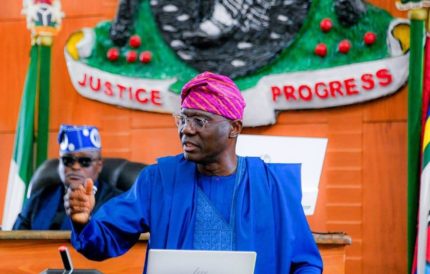In a move aimed at enhancing identification systems and bolstering citizen services, the Federal Government of Nigeria has announced plans to introduce three new national identity cards. These cards, set to debut in May of this year, are slated to reach an estimated 104 million citizens across the nation. The initiative, spearheaded by the National Identity Management Commission (NIMC), marks a significant step forward in Nigeria’s efforts to modernize its identification infrastructure.
Ayodele Babalola, the Technical Adviser for Media and Communications to the Director-General of NIMC, unveiled the details of the forthcoming identity cards. The trio of cards comprises a bank-enabled National ID card, a social intervention card, and an optional ECOWAS National Biometric Identity Card. Babalola emphasized that these cards aim to cater to the diverse needs of Nigerian citizens, ranging from financial transactions to accessing federal government services and international travel.
The rollout strategy outlined by Babalola underscores the Federal government’s commitment to addressing the needs of different segments of the population. The bank-enabled National ID card targets the middle and upper echelons of society, with a focus on facilitating seamless banking transactions. Meanwhile, the National Safety Net Card aims to provide essential authentication and a secure platform for Federal government services, particularly for the 25 million vulnerable Nigerians benefiting from Federal government intervention programs.
Moreover, the optional ECOWAS National Biometric Identity Card is positioned to facilitate regional mobility and cooperation, aligning with Nigeria’s broader commitments to the Economic Community of West African States (ECOWAS). Digital versions of these cards will also be available, catering to individuals who prefer virtual formats, albeit with certain limitations in functionality.
Federal government Implementation Roadmap and Collaborative Efforts
Babalola outlined a comprehensive implementation roadmap, highlighting collaborative efforts with key stakeholders to ensure the success of the identity card program. The partnership with the Nigerian Inter-Bank Settlement System (NIBSS) and banks underscores the government’s commitment to leveraging existing financial infrastructure for the distribution and activation of the bank-enabled National ID card. Additionally, the collaboration with the Nigerian Immigration Service for issuing ECOWAS cards underscores the importance of inter-agency cooperation in advancing regional integration objectives.
However, Babalola emphasized that the timeline for the launch is contingent upon presidential approval and the finalization of crucial details. While targeting May for the potential rollout, Babalola underscored the need to address critical aspects before the official launch. Notably, the project’s reliance on AfriGo, a platform under the purview of the Central Bank of Nigeria, underscores the government’s commitment to leveraging digital solutions for identity management initiatives. Ultimately, the success of the national identity card program hinges on effective coordination, stakeholder engagement, and presidential endorsement, signaling a pivotal juncture in Nigeria’s journey towards robust identification systems and inclusive citizen services.
Addressing Concerns and Simplifying Procedures
The introduction of the NIN card linked to bank accounts marks a significant shift in Nigeria’s identification landscape. While the prospect of a more convenient identification system is welcomed by many, some citizens have expressed reservations, fearing additional biometric registrations or tedious data collection processes. Given the existing challenges faced by the populace, such as bureaucratic hurdles and time-consuming procedures, it is crucial for the Federal government to allay these concerns.
Utilizing the previously collected data for NIN registration could mitigate the burden on citizens and expedite the adoption of the new system. Additionally, the federal government must embark on an aggressive enlightenment campaign to educate the public about the benefits of the new NIN card. By emphasizing the enhanced accessibility and utility of the card, as well as its integration with banking services, the federal government can stimulate interest and encourage citizens to obtain it willingly.
Promoting Awareness and Ease of Access
Effective communication is key to ensuring the successful implementation of the new NIN card system. The federal government must prioritize comprehensive enlightenment campaigns, leveraging various channels such as mass media, community outreach programs, and digital platforms. By disseminating clear and concise information about the functionalities and advantages of the NIN card, the federal government can address misconceptions and build trust among the populace.
Moreover, efforts should be made to streamline the process of obtaining the card, making it easily accessible through collaboration with banks and other relevant institutions. Simplifying the application process and minimizing bureaucratic hurdles will not only alleviate the burden on citizens but also foster a sense of inclusivity and participation in the national identity system. Overall, by proactively addressing concerns, promoting awareness, and enhancing accessibility, the Nigerian federal government can ensure a smooth transition to the new NIN card system, facilitating broader integration and utilization among citizens.
Table of Contents
Discover more from OGM News NG
Subscribe to get the latest posts sent to your email.













